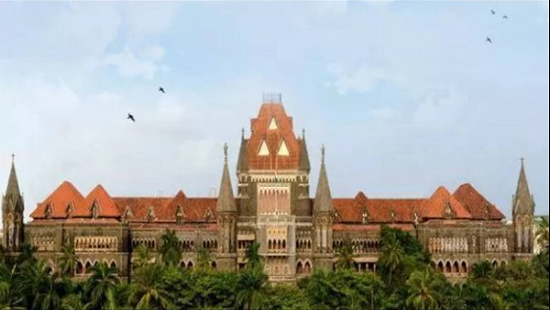
Bombay High Court’s Probe into MHADA’s Redevelopment Notices: A Defining Moment for Mumbai's Housing Reforms
At a pivotal moment for Mumbai’s urban landscape, the Bombay High Court’s order to investigate over 900 MHADA notices declaring buildings as “dangerous” signals more than just a legal check on the housing authority. It represents an opportunity for deeper reflection on how urban governance in India can evolve to balance the urgency of redevelopment with the rights of citizens.
For too long, the pace of redevelopment in Mumbai, driven by housing crises and rapid urbanization, has been compromised by opaque practices and hasty decisions. In this crucial juncture, the court’s probe into MHADA’s actions asks not just whether the process followed the letter of the law, but if it fully embraced the spirit of equity, justice, and fairness that must guide the future of India’s cities.
The Legal and Procedural Deficit in Mumbai’s Urban Renewal
The crux of the matter lies in Section 79A of the MHADA Act, which allows the authorities to declare buildings dangerous and initiate redevelopment. However, the court has raised serious concerns about the arbitrary nature of these declarations and the sweeping powers given to MHADA’s engineers without sufficient checks and balances. When over 900 notices are issued under this provision, affecting hundreds of residents, it calls into question the systemic flaws in how urban redevelopment is executed—flaws that have led to the disenfranchisement of residents, the crumbling of social trust, and the erosion of public faith in governance.
As much as these notices are about buildings, they are about people—families who have lived in these spaces for generations, contributing to the fabric of Mumbai’s growth. Their lives are not footnotes in a bureaucratic exercise; they are the central figures in this story. The question now is whether the law is being wielded as a tool for progress or as a blunt instrument to push forward the redevelopment agenda, regardless of its human cost.
A Call for Transparency and Accountability
The appointment of a two-member committee, led by retired judges Justice J.P. Devadhar and Vilas Dongre, signals a strong move toward restoring accountability in MHADA’s practices. But this probe, while essential, should not just be about identifying procedural lapses; it must be a springboard for transforming how we think about urban redevelopment in the future.
Urban renewal is not simply about knocking down old buildings and putting up new ones. It’s about building a city where people matter, where their dignity is preserved, and where every citizen’s rights are safeguarded—whether they live in a high-rise or a chawl. This investigation must set the stage for systemic reforms in Mumbai’s housing policies, ensuring that no decision is ever made in isolation, without considering its long-term impacts on both the people and the city.
MHADA’s Role in Shaping Mumbai’s Housing Future
While the court’s scrutiny is important, it should not overshadow the monumental efforts being made to address Mumbai’s housing crisis. Under the guidance of IAS officer Sanjeev Jaiswal, MHADA has made significant strides in transforming Mumbai’s outdated and dilapidated housing stock. The redevelopment of chawls and other dilapidated buildings represents a long-overdue shift toward modernity, sustainability, and improved living conditions for thousands of families.
Yet, this process needs to be aligned with the principles of transparency, fairness, and inclusivity. In a city that has long struggled with the twin issues of population growth and urban planning, MHADA’s leadership must go beyond just executing projects. It must become an advocate for long-term systemic changes, ensuring that redevelopment efforts are not just about increasing the stock of housing, but about creating a city that works for everyone.
The Systemic Reforms Mumbai Needs
The fundamental problem with Mumbai’s redevelopment agenda is that it often operates within a framework that is disconnected from the reality of the people it aims to serve. The city’s redevelopment efforts must shift from a top-down approach, driven solely by bureaucratic expediency, to a bottom-up model that involves residents in the decision-making process from the very start. In a city like Mumbai, community-led redevelopment, where residents are partners in shaping their own futures, is not just idealistic—it’s essential.
The ongoing probe must also reflect on the broader question of how India’s urban governance structures are evolving. Are we using our legal and institutional frameworks to genuinely empower citizens and improve their lives, or are we inadvertently perpetuating systems of exclusion and marginalization? The focus on MHADA’s actions is just the tip of the iceberg; it must be followed by a national conversation about inclusive urban development and the reforms necessary to make our cities liveable, equitable, and just.
Conclusion: Rethinking Urban Renewal in India
As we look ahead, Mumbai’s housing reforms should serve as a case study for other cities grappling with the twin challenges of rapid urbanization and housing shortages. The current probe into MHADA’s actions is not just about fixing past mistakes; it’s about setting the stage for a new era of urban governance—one that prioritizes transparency, community engagement, and fairness at its core.
Under the leadership of Sanjeev Jaiswal, MHADA has a unique opportunity to become a model of urban renewal that other cities across India can follow. But to do so, it must act decisively to address the deep systemic issues at play, ensuring that every redevelopment project serves the needs of its people, rather than just the interests of the powerful.
The real question here isn’t just about whether MHADA followed the law. It’s about whether we, as a nation, are prepared to embrace a new, visionary model of urban development that truly serves all citizens—today and in the future.

